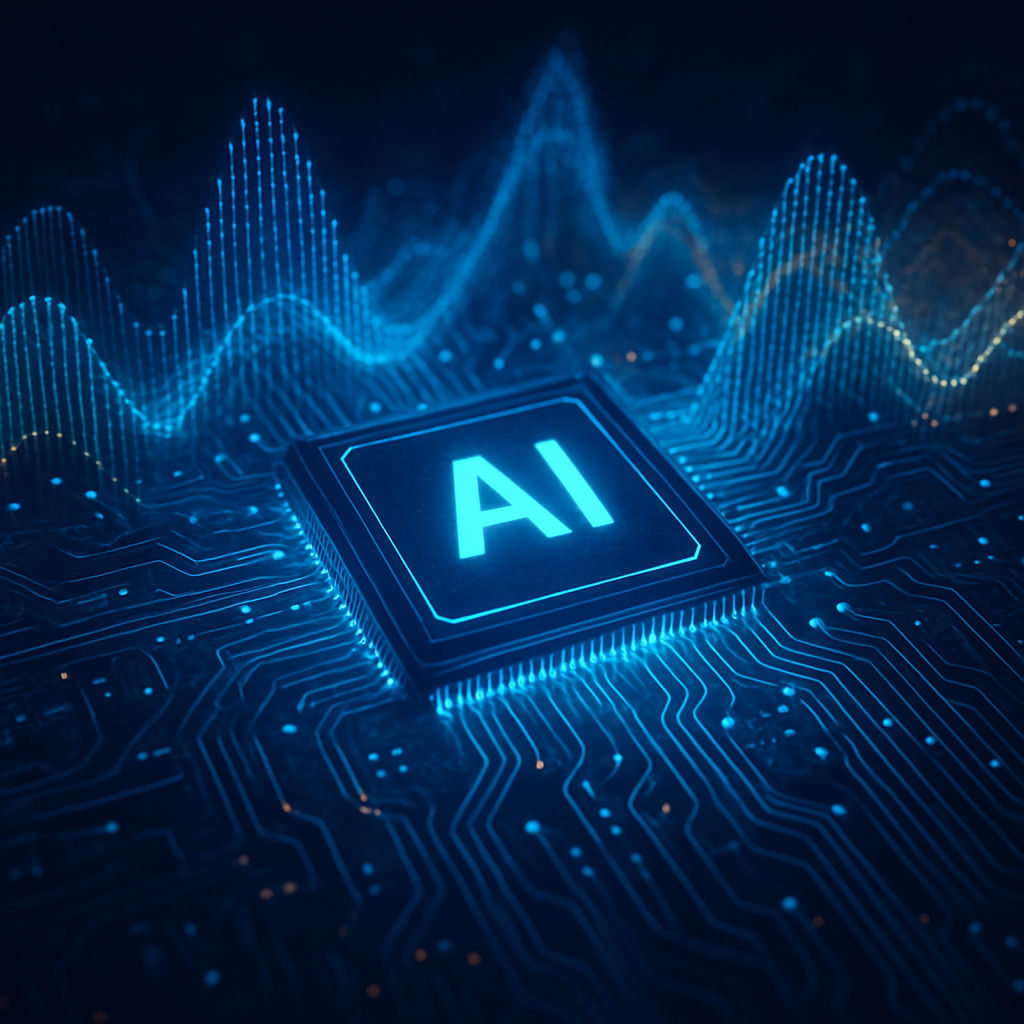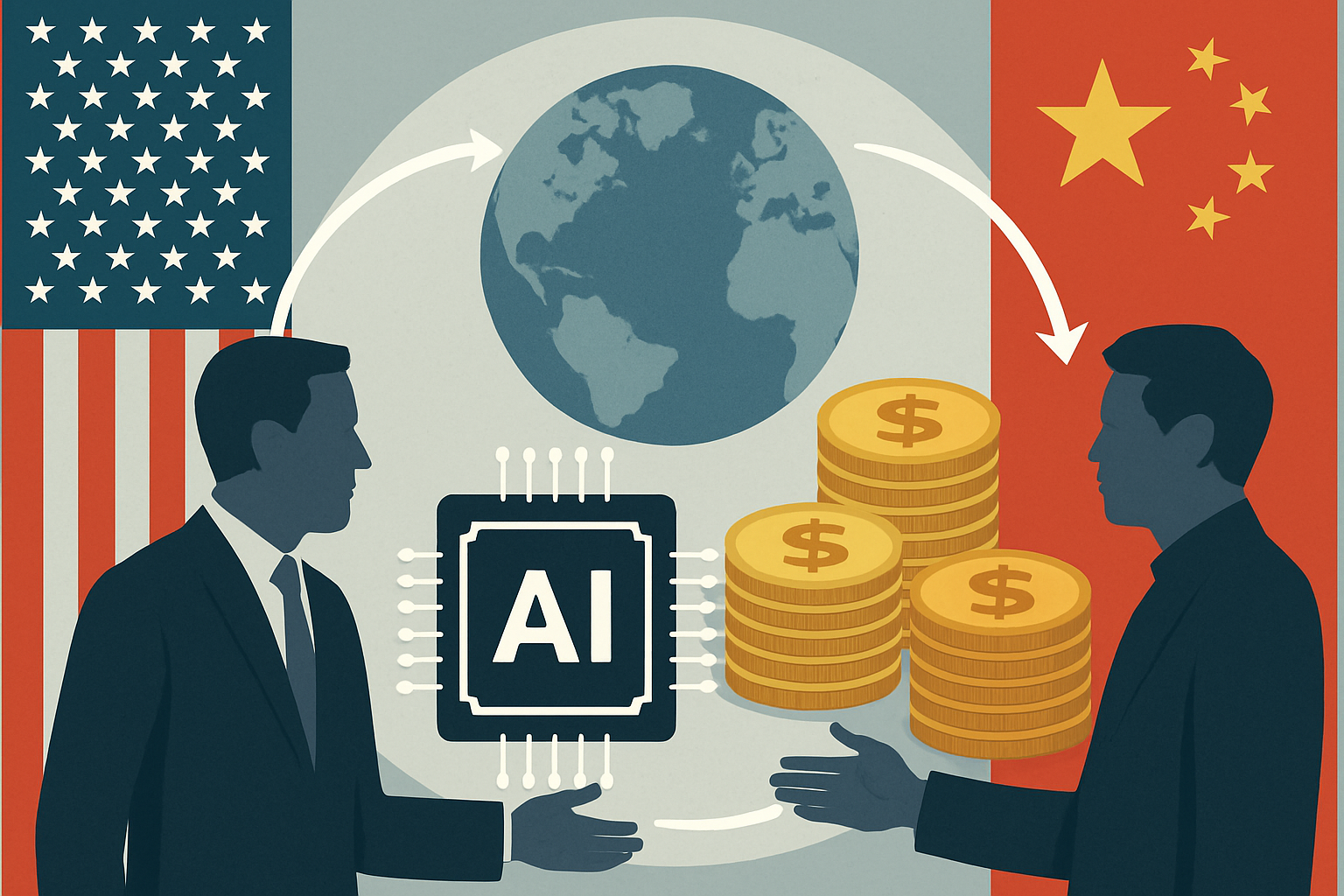The world of artificial intelligence (AI) is witnessing rapid expansion and fierce competition, not only in software but crucially in hardware innovations. At the heart of this dynamic is Rain AI, a San Francisco-based semiconductor startup that had once promised to revolutionize AI computing with next-generation chips. Backed by prominent investor Sam Altman, co-founder of OpenAI, Rain AI set out with the ambitious goal of creating chips that would outperform industry leaders like Nvidia in both power and energy efficiency. However, in a surprising twist, the company is now exploring the possibility of being sold after a significant $150 million fundraising round collapsed.
The collapse of Rain AI’s Series B round has sent ripples through the startup ecosystem, raising questions about the viability of emerging chipmakers and the challenges they face in scaling their advanced technology into commercial success. This development also highlights the complex interplay of venture capital, strategic investment, and evolving competitive pressures in the semiconductor and AI fields. As Rain AI discusses acquisition talks, including potential involvement by OpenAI itself, industry watchers are closely monitoring how this sale might reshape competitive dynamics among AI hardware providers.
Key reasons underlying Rain AI’s fundraising struggles include leadership changes, difficulties in converting technological breakthroughs into sales contracts, and escalating costs that drained the company’s financial runway. The story of Rain AI also reflects the broader tension in the startup ecosystem, where innovative designs must quickly transition from concept to customer adoption to justify investment and compete in a market dominated by tech giants.
Meanwhile, the U.S. government’s role in the venture capital landscape has added further complexity. Following national security reviews, a Saudi Aramco-backed investment firm involved with Rain AI was forced to divest its stake, illustrating how geopolitical considerations intersect with technology investments. The saga of Rain AI, Sam Altman’s investment, and OpenAI’s potential acquisition bid is emblematic of the volatile intersection of technology innovation, finance, and global strategy shaping the AI chipmaking arena in 2025 and beyond.
The Rise and Fall of Rain AI: Challenges in AI Chip Startup Fundraising
Rain AI emerged in the semiconductor scene with an impressive vision: to develop computing chips that leverage novel compute-in-memory architectures, promising significant improvements in speed and energy efficiency for generative AI models. This cutting-edge technology stood out amid the current dominance of Nvidia, whose GPUs are the preferred hardware for AI workloads globally. Rain AI attracted attention early on, securing a $25 million seed investment in 2022, heavily supported by Sam Altman himself.
Despite this auspicious start, Rain AI’s attempt to secure a $150 million Series B round encountered repeated setbacks. Originally scheduled for launch in December 2024, the round was postponed multiple times, reflecting hesitations among private investors regarding the startup’s business viability. Internal challenges appeared to compound the funding difficulties, notably the departure of Rain AI’s co-founder and CEO Will Passo due to personal reasons. His exit not only impacted operational momentum but also cast doubts among investors about the company’s capacity to execute its ambitious plans.
Jack Kendall, co-founder and now CEO, confirmed that Rain AI found it increasingly hard to close its Series B round in a context dominated by entrenched competitors. To maintain operations during discussions about an acquisition, Rain AI secured a $3 million bridge fund. This short-term financial lifeline underscored the urgent need for a strategic solution to avoid a deeper financial crisis.
Several factors contributed to the fundraising struggle:
- Lack of commercial traction: Though Rain AI demonstrated technical success in chip testing, it failed to secure contracts or letters of intent with potential customers.
- Competitive market pressures: Giants like Nvidia continue to dominate with well-established products and customer relationships, making it difficult for startups to break through.
- Leadership transition: The CEO change during a pivotal fundraising period created uncertainty among investors.
- Limited sales-focused experience: Founders with strong engineering backgrounds but less experience in sales and business development were at a disadvantage.
These issues illustrate the broader challenges semiconductor startups face when raising capital in a market that demands not just innovation but a proven path to revenue and growth.

| Fundraising Milestone | Amount Raised | Investor Highlights | Stage | Outcome |
|---|---|---|---|---|
| Seed Round (2022) | $25 million | Sam Altman, Prosperity7 (Aramco-backed) | Early-stage product development | Successful |
| Series B Round (Late 2024) | $150 million (planned) | Private investors including potential OpenAI involvement | Scaling and commercialization | Collapsed/postponed |
Broader Implications for Semiconductor Startups in the AI Era
Rain AI’s difficulties showcase key lessons for emerging chipmakers aiming to thrive in the AI-driven hardware sector. Advanced technology alone is not sufficient; startups must balance innovation with business acumen and market strategy. Investors frequently seek evidence of customer traction, partnerships, and a clear pathway to profitability before committing substantial funds.
Successful AI semiconductor startups typically:
- Secure early contracts or pilot programs with leading AI users.
- Establish strategic alliances with system integrators or cloud providers.
- Develop leadership teams combining engineering excellence with commercial expertise.
- Navigate geopolitical and regulatory landscapes proactively, anticipating challenges to cross-border investments.
For more insights on startup fundraising and profitability strategies, entrepreneurs can explore profitable ebook secrets that detail financial planning and investment pitching techniques tailored for technology ventures.
OpenAI and the Strategic Interest in Acquiring Rain AI amid AI Hardware Competition
OpenAI, led by Sam Altman, has emerged as one of the significant suitors considering the acquisition of Rain AI as the startup seeks rescue following its fundraising failures. Although no formal offer has been publicly confirmed, multiple sources reveal that Altman is actively involved in pushing for OpenAI to absorb the startup, potentially rescuing his early investment.
This development occurs in the context of an intensifying battle for AI supremacy, where hardware innovations play a critical role. Nvidia’s dominance is being challenged by emerging players and partnerships. For instance, recent collaborations between xAI—Elon Musk’s AI company—and Nvidia, alongside major entities like Microsoft and BlackRock, underscore an ecosystem investing over $30 billion to advance AI infrastructure within the United States.
By acquiring Rain AI, OpenAI could:
- Integrate Rain’s energy-efficient chips to optimize AI model training and inference, reducing operational costs.
- Accelerate in-house research and development on neuromorphic computing architectures, aiming for breakthroughs beyond the capabilities of current GPUs.
- Strengthen its vertical integration strategy to control more of its technology stack, enhancing innovation speed and security.
However, OpenAI’s potential acquisition also carries risks. Integrating a struggling startup poses challenges related to culture, technology compatibility, and resource allocation. Furthermore, potential regulatory scrutiny over consolidations in this high-stakes sector adds complexity.
For startups looking to navigate potential acquisition scenarios, understanding how to pivot and position technology is crucial. Resources like firecrawl ycombinator AI agents provide strategic guides on adapting software and hardware startups in the AI domain for acquisition readiness.
| Potential Benefits of OpenAI Acquisition | Risks and Challenges |
|---|---|
| Access to advanced neuromorphic chips | Integration difficulties due to startup’s financial instability |
| Competitive edge vs. Nvidia and other players | Regulatory scrutiny on tech consolidations |
| Cost reductions in AI computation | Retention of key Rain AI talent and cultural assimilation |
Geopolitical and Regulatory Impacts on Rain AI’s Venture Capital Landscape
The involvement of Prosperity7, a venture capital firm backed by Saudi Aramco, in Rain AI’s seed round underlines the international nature of technology investments in AI semiconductors. However, geopolitical sensitivities have complicated this picture significantly. In 2025, the U.S. government, led by the Biden administration, mandated Prosperity7 to divest its shares in Rain AI following a review by the Committee on Foreign Investment in the United States (CFIUS), citing national security concerns.
This forced divestment is a stark reminder that technology companies involved in AI hardware are not just business entities but strategic assets in a broader geopolitical context. The U.S. government’s actions reflect heightened caution about foreign ownership in critical technology sectors that underpin national competitiveness and security.
Such regulatory interventions affect:
- The availability of venture capital from international sources.
- Investor confidence and valuations of startups in sensitive technology domains.
- The strategic alliances and partnerships that startups can pursue globally.
- The structuring of fundraising rounds to comply with regulatory demands.
For emerging startups navigating such complexities, resources on pricing strategies and profitable business models can be invaluable in attracting compliant investors and structuring sustainable growth plans.

Additionally, these geopolitical pressures may accelerate efforts to develop domestic chip manufacturing and design capabilities within the U.S., as seen in government-backed initiatives supporting semiconductor independence. Such trends create both challenges and opportunities for technology startups like Rain AI.
Technological Innovation and Market Position of Rain AI in the AI Semiconductor Sector
At the core of Rain AI’s value proposition is its pioneering compute-in-memory technology, which aims to mimic neural processes and increase computational efficiency. This approach promises to overcome the limitations of traditional von Neumann architectures that put significant bottlenecks on data transfer between memory and processor units. By integrating memory and computation, Rain AI’s chips are designed to handle large AI models faster and with less energy consumption.
Apple’s former chip expert Jean-Didier Allegrucci joined Rain AI in 2024 to accelerate its R&D efforts. His experience in building Apple’s custom silicon chips, which disrupted Intel’s dominance in personal computing, lent credibility and technical strength to the startup’s vision. This strategic hire was expected to help Rain AI scale its technology toward commercial readiness and market competitiveness.
Nonetheless, advanced technical capabilities have not translated into immediate commercial contracts. This highlights a common challenge for semiconductor innovators:
- The lengthy cycle from chip design to production and integration into AI data centers or devices.
- The immense capital expenses required for scaling manufacturing processes and securing supply chains.
- The need for partnerships and pilot projects to validate technology performance under real-world conditions.
Despite these challenges, Rain AI remains a significant player pushing forward technology boundaries. AI-focused enterprises and cloud providers are keeping a close eye on such innovations that could reshape cost structures and performance metrics in AI computation. Forward-thinking investors and companies understand that early-stage ventures like Rain AI may be critical to the long-term evolution of the AI semiconductor market.
| Technology Aspect | Description | Potential Impact |
|---|---|---|
| Compute-in-Memory | Integrated memory and processing to reduce data movement | Lower latency, higher efficiency for AI model computations |
| Neuromorphic Design | Chip architectures mimicking brain neural networks | Enables more intelligent, adaptive hardware for AI |
| Energy Efficiency | Reduced power consumption compared to traditional GPUs | Cost savings and scalability in AI infrastructure |
Entrepreneurs and developers interested in maximizing technology impact are encouraged to explore funding opportunities for AI video projects and hardware startups at Hedra AI video funding to accelerate innovation cycles.
Leadership, Talent, and the Future Outlook for Rain AI in the Startup Ecosystem
The recent transition in Rain AI’s leadership, with Jack Kendall replacing Will Passo as CEO, signals significant strategic recalibrations. Leadership changes in such critical phases often reveal underlying issues but also open the door to fresh approaches. Kendall’s communication about the company’s pivot toward acquisition talks and bridge funding indicates a realistic appraisal of the startup’s position and a pragmatic search for survival.
Industry insiders suggest that while Rain AI’s founders and engineers have strong technical know-how, the startup struggled with sales and customer development — crucial skills for closing deals and scaling. This business challenge, combined with the high capital intensity of semiconductor ventures, highlights why startups must build varied leadership teams blending technical innovation with commercial expertise.
Looking ahead, potential outcomes for Rain AI include:
- An acquisition by OpenAI or other major technology firms, ensuring continuity of technology development within larger resource-rich environments.
- A successful turnaround if new investment and sales channels are secured, potentially leveraging strategic partners.
- Consolidation of the startup into broader AI hardware alliances or ecosystems, fostering collaboration over competition.
This situation is a case study in how deep-tech startups, particularly in semiconductors, straddle innovation risk and market realities. Equipping startup CEOs and leadership with tools to prioritize sales and partnerships early can be decisive for success or failure.
Founders and executives looking to strengthen their startup’s competitive positioning can find valuable guidance on essential factors influencing SaaS and technology companies at The Pivotal Factor for SaaS Startups.
Summary Table: Leadership and Strategic Challenges at Rain AI
| Factor | Impact on Rain AI | Strategic Implication |
|---|---|---|
| CEO Transition (Will Passo to Jack Kendall) | Operational disruption, investor uncertainty | Shift toward acquisition focus and pragmatic survival |
| Engineering-Heavy Founders | Strong tech innovation but weak sales traction | Need for business development expertise to drive growth |
| Bridge Fundraising ($3 million) | Temporary liquidity to maintain operations | Enables continuation of acquisition talks and sales efforts |
Frequently Asked Questions about Rain AI and Its Industry Context
- What technology does Rain AI specialize in?
Rain AI focuses on compute-in-memory semiconductor technology designed to improve efficiency and speed for artificial intelligence workloads, particularly generative AI models.
- Why did Rain AI’s fundraising round fail?
The Series B round failed mainly due to difficulties in securing commercial contracts, leadership changes, and intense competition from established chipmakers.
- Is OpenAI buying Rain AI?
While OpenAI is reportedly a suitor and Sam Altman supports the acquisition effort, no formal offer has been publicly announced yet as of now.
- How did geopolitical factors affect Rain AI’s investors?
The U.S. government forced Prosperity7, a Saudi Aramco-backed fund, to divest its stake in Rain AI for national security reasons, complicating the investment landscape.
- What are the prospects for AI hardware startups?
AI hardware startups face significant challenges in fundraising and commercialization but remain critical to innovation by providing alternatives to dominant market players and optimizing AI workloads.


